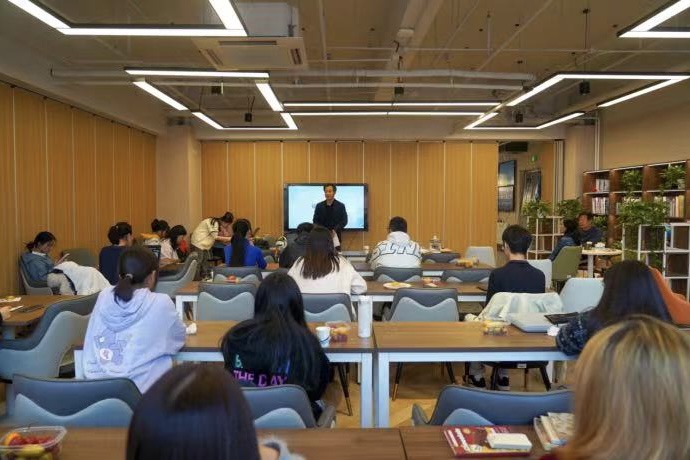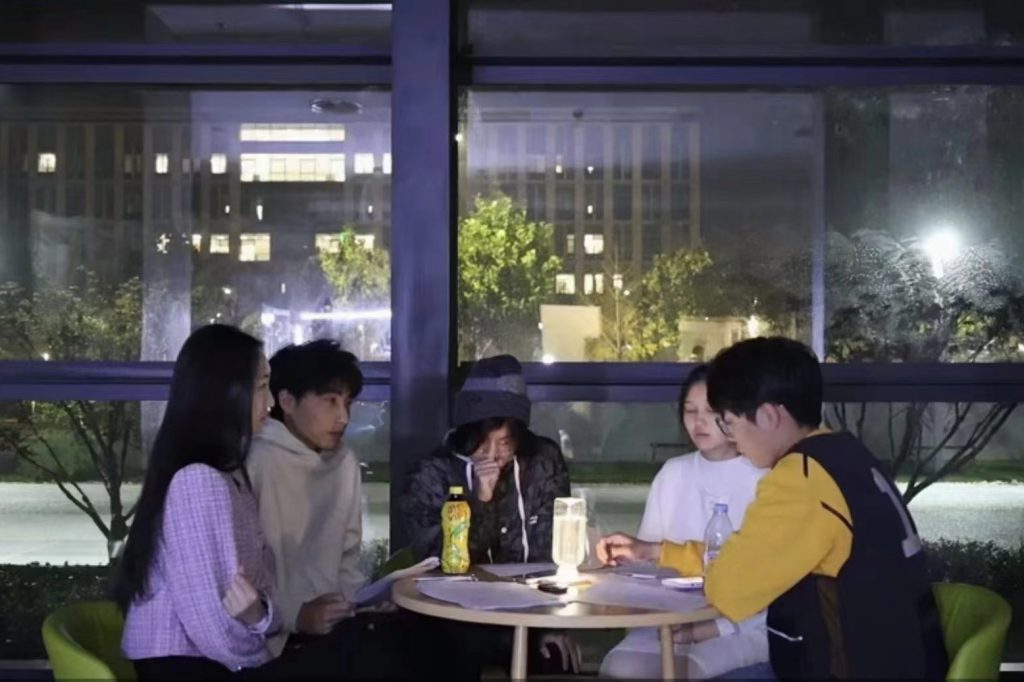Interview
This week I managed to set up an interview with Mr. Zhong, who graduated from the University of Toronto, is a counsellor and currently owns a private practice.
1. How do you think the trends generated by social media affect the real life of Gen-Z?
Social media has already affected the real life of adolescents and will continue to have a profound impact under, for example, many young people are accustomed to keeping up with the latest hot trending trends on the Internet, fearing to miss news, and not daring to turn down other people’s requests for fear of isolation …… over time, and are only impressed by the anxiety that was generated by the lack of use of social media during that period of time.
2. Do you think Gen-Z get anxious about FOMO emotions when using social media?
The vast majority of Gen-Z do and it is not controlled by personal will.
3. What do you think are the reasons that social media use creates anxiety in Gen-Z?
There can be a vicious circle between FOMO and social media use. On the one hand, the rewarding experience of fulfilling the need to ‘socially monitor’ other people’s lives in order to alleviate the anxiety of being socially excluded may exacerbate compulsive social checking behaviours and symptoms of social network addiction. On the other hand, frequent exposure to other people’s lives through social networks may increase the fear of being excluded from the beneficial experiences that others may have, thus reinforcing the fear of missing out.
4. How to alleviate the anxiety social media brings?
In today’s information explosion and the increasing AI anthropomorphism of social media, Gen-Z using social media often feel that there are endless swipes of dynamics, and in the face of miss-phobia, how to do a digital detox by narrowing down one’s circle of friends and spending more time with important people instead of slipping community dynamics. Easing this anxiety requires developing healthy social media consumption habits that require time, sacrifice and self-reflection, such as practical actions that can be taken to reduce an individual’s reliance on social media, including turning off message notifications, deleting or limiting the use of unhelpful apps, and managing social media dynamics by unfollowing certain accounts.
5. What do you think should be done to help Gen-Z use social media appropriately?
In addition to education and guidance, the healthy use of social media by adolescents requires intervention and the setting of goals by themselves and their guardians for the changes they want to make, including controlling the amount of time they spend blindly swiping, browsing for valid information on apps, or not taking their phones back to their bedrooms to sleep, etc., and keeping track of their own experiences and feelings through diaries and standardised psychometric surveys, with a view to improving social engagement. In increasing social engagement. First, enlist peer support to reduce feelings of isolation. Socialising is the main purpose of adolescents using social media. To address the social motivation, Gen-Z can go out of their homes and bedrooms to make more real friends. Through face-to-face real contact to pull in the distance between friends and improve the sense of social participation. Secondly, to enrich after-school life, get out of the emptiness brought by the virtual world, and engage in social activities and practices. Social activities and practices can help Gen-Z find their own values better than social media. By shifting their attention to things that interest them, they can gain a sense of achievement and fulfilment by being appropriately ‘busy’.
6. As FOMO is a foreign word created in the West, do you think it has a more specific impact on Chinese Gen-Z (compared to Western Gen-Z)?
One very special point of Chinese Gen-Z in terms of FOMO emotions compared to Western Gen-Z is that our young people lack freer self-control during the student stage, which leads them to be more prone to contact the outside world due to a compensatory mentality when facing the temptations of the digital age, such as social media, and to crave for social attention, and therefore more prone to fall into this kind of anxiety. This particular influence can be studied from the perspective of why the social media, Douyin (Tic Tok), the head APP for creating FOMO, has flourished from China. I think it has something to do with national identity. China is a collectivist culture that likes to socialise and humanise and socialise with each other. Chinese people have fewer associations in real life, but there are many different kinds of online communities on the Internet. Chinese people like the culture of ‘gathering’. In the West, it’s a culture of individualism. Of course, they also like to gather, but they are not as keen on socialising and partying as China.
Second intervention
My second intervention was to organise a talk on the campus of North China Electric Power University on the topic of FOMO and mental health management. I was able to borrow a conference room and invited interested students from the group that I had formed from the Freshers’ Welcome programme, and there were 15 people in total. Firstly, computer science tutor Mr Zhang, introduced the campus environment to the new students, and I am really thankful to Mr Zhang for his help, without which I would not have been able to complete this activity.

Next I connected with Mr Zhong online and we had the above interview in front of the students. He gave the students an in-depth introduction to the relationship between FOMO and social media, delving into the development of FOMO, why this psychological response is activated in social media environments, and the specific impact it has on young people’s mental health.
Next I invited Susu, the mental health blogger who I had previously interviewed, to come to the conference room and interact with the students in a Q&A session so that they could communicate more directly with the counsellor. She shared her experience on how to cope with FOMO in her personal life and also explained about how to communicate better in a new enviroment. Next she taught to set up healthy social media usage habits and selectively focus on positive influences. Together we set time limits for Douyin and Xiaohongshu to monitor and manage the social media use. I also recommended the book Skärmhjärnan (Screen Brain) by Anders Hansen, and the podcast ‘Zonghengsihai’ that details the book.
Finally, I said that I wanted to organise a peer support group that would meet regularly offline or online to share experiences of managing FOMO and anxiety, and to observe the long-term effects. Two of the people in this talk were willing to participate in my project on a long-term basis, and I will be looking for those who are willing to participate from those who have filled out the questionnaire before.

The session lasted for about two hours in total, and there were still interested students who stayed after the session to continue the discussion, and their feedback to me was that both counsellors’ case studies were very helpful, and that they were able to find ways to alleviate their anxiety without thinking too much about it. They also quickly met a lot of students who were going through the same thing, and many of them felt very secure as new students because they had a familiar group. Although some people were not comfortable participating in my programme for the long term, they said that they would try to stick to a set time limit for social media use and focus more on real life, and that being new to university was a good time to start developing new habits. I had a great time and it was a very memorable experience for all of us to spend the afternoon with little to no mobile phone use and instead focus on face-to-face encounters.